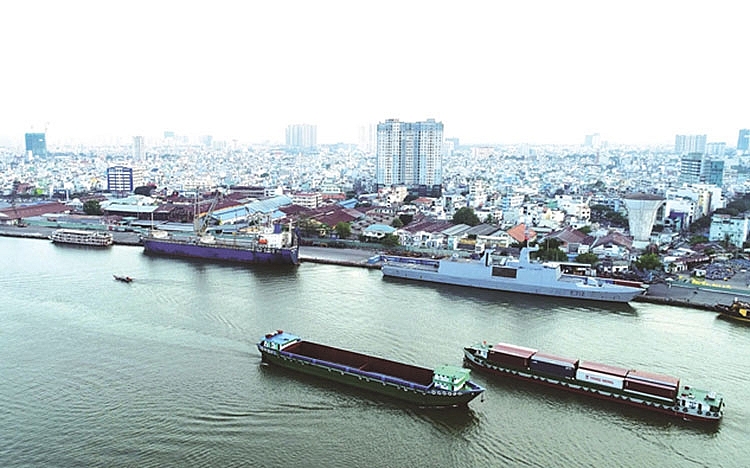Bringing Vietnam's human resources level with logistics industry
 |
| Human resources need to be brought up to speed with the development trends in the logistics industry in Vietnam |
In the strategy for the sustainable development of the marine economy until 2030 with a vision to 2045, Vietnam set out to become a powerful marine nation. Thereby, along with completing logistics infrastructure and transportation, human resources in this industry should also be developed to improve the economy’s competitiveness.
In order to provide advanced training programmes, the Vietnam Traffic Safety Association and STC Group organised the seminar on “Global trends in human resources training in port, logistics, maritime, and maritime safety and security,” consisting of topics like "Global trends and developments in port and logistics", "Maritime education – revolution or evolution", challenges that Vietnamese companies in port and logistics are and will be facing in HR development, and Vietnam's maritime safety and security.
Experts introduced and shared some knowledge and experiences on HR training in the seaport, maritime, and logistics industry of Vietnam and over the world.
Truong Tan Loc, general director of Tan Cang-STC LLC said that customs brokers, forwarders, and logistics administrators/co-ordinators make up around 90 per cent of jobs in logistics in enterprises, followed by transport management officers, truck drivers, e-commerce sales officers, and warehouse supervisors.
However, in the time coming, the most attractive positions will be e-commerce online marketing officer and sales. Some manual tasks like customs brokerage will probably disappear. Others like warehouse/inventory distribution operator and supervisor will see a sharp reduction in numbers.
The recruitment demand for logistics staff in enterprises will focus on skills like communication, negotiation, English, knowledge, experience, and positive attitude much more than academic achievements.
There are 3,000 logistics enterprises in Vietnam currently, 54 per cent of which are operating in Ho Chi Minh City. Meanwhile, HR demand will rise to over 200,000 by 2030, and at the current rate, the market will only be able to meet 10 per cent of this demand.
“HR is one of the biggest problems that cause difficulties for logistics enterprises,” said Loc.
According to Vietnam Maritime Administration, the country has already signed transportation agreements with 28 countries, including Japan, France, Germany, the US, as well as 32 international agreements on the recognition of crew qualifications among countries. This is a very favourable condition for Vietnamese HR to participate in the international working environment.
The Shipping and Transport College Group (STC Group), an international maritime transport and logistics education provider, which also offers consultancy and applied research in the field of shipping, ports, transport, logistics and port-related oil and chemical activities, will contribute to improving Vietnam's human resources level with logistics industry.
What the stars mean:
★ Poor ★ ★ Promising ★★★ Good ★★★★ Very good ★★★★★ Exceptional
Related Contents
Latest News
More News
- State corporations poised to drive 2026 growth (February 03, 2026 | 13:58)
- Why high-tech talent will define Vietnam’s growth (February 02, 2026 | 10:47)
- FMCG resilience amid varying storms (February 02, 2026 | 10:00)
- Customs reforms strengthen business confidence, support trade growth (February 01, 2026 | 08:20)
- Vietnam and US to launch sixth trade negotiation round (January 30, 2026 | 15:19)
- Digital publishing emerges as key growth driver in Vietnam (January 30, 2026 | 10:59)
- EVN signs key contract for Tri An hydropower expansion (January 30, 2026 | 10:57)
- Vietnam to lead trade growth in ASEAN (January 29, 2026 | 15:08)
- Carlsberg Vietnam delivers Lunar New Year support in central region (January 28, 2026 | 17:19)
- TikTok penalised $35,000 in Vietnam for consumer protection violations (January 28, 2026 | 17:15)

 Tag:
Tag:

























 Mobile Version
Mobile Version